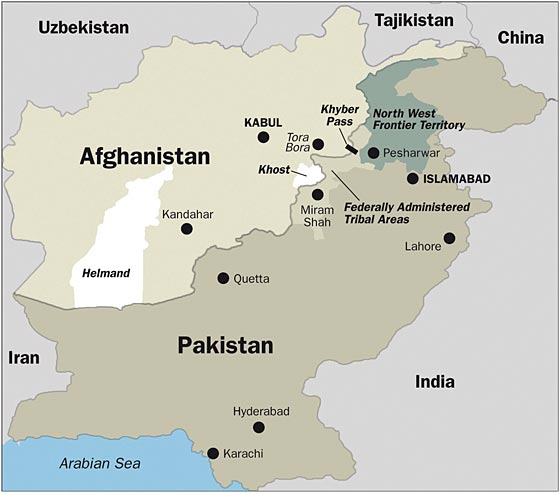Afghanistan and Pakistan in 2014
Dr. Faiz Mohammad Zaland Political analyst
Pakistan and Afghanistan once again are in a period of history in which they can evaluate their bilateral relations, whether they seek cooperation or animosity in these relations. Both countries can lead together to a better future with trust-building measures and interactive cooperation or to a mistrust and acrimony between two countries with uncooperative contiguity.
In fact, 2014 is significant year for Afghanistan as the political and economical and finally the security transition will take shape, also for Pakistan, to redefine its foreign policy, economic stability and differentiating between Afghan and Pakistani Taliban and this state must not think that Afghanistan is the backyard of Pakistan or rethink on seeking its strategic depth in Afghanistan.
On the other hand, 2014 is bringing significant responsibilities for Afghanistan; one among them is the transition of political authority through election. Holding election is a very necessary step for long term stability in the country, which must be held free and timely. Political transition through election will bring some changes in policies; one of them can be the new policy against Pakistan. Besides, the new Afghan government can redefine a new mechanism for the fledgling peace talks and eventually this new government might be fulfilling the security transition.
Pakistan and Afghanistan can play significant role in each other’s stability, because, Pakistan is marked as one of important factor in Afghanistan’s instability. Pakistan allowing militants safe haven, and coordinating and funding them with equipments and supports, so Pakistan also can make an effective mechanism for peace talks between Taliban and Afghan government. In last one decade Pakistan with forward policy used Taliban for achieving its strategic depth and through this way they created troubles for NATO, U.S. and also Afghan government and repeatedly Taliban in last one decade threatened Afghan government rule in various parts of the country. Pakistan in last one decade was facing a new threat of Pakistani Taliban, besides of Balooch continuously freedom resistance, and finally the energy crisis that threatening the economy of this country, all can be marked as roadblocks for stability and development of Pakistan.
Pakistan from the time of its formation, used fundamentalism as a tool in its foreign policy, through which they took warm Kashmir’s war and even won the cold war for U.S., But recently they used to try this weapon against U.S; its strategic ally and Afghan government.
2014 can be the last year of crucial interactions between Afghanistan and Pakistan; both countries need to redefine their national interests and concerns. Pakistan can pursue its strategic depth through non-military ways and can compete with India in positive way instead of effluence fundamentalism. Afghan government can also adopt a new mechanism for the fledgling peace negotiations and with pursuing a successful regional policy they can also reduce antonyms in interactions and pay respect to their national interests.

